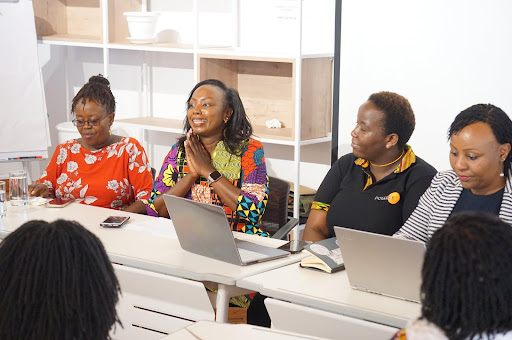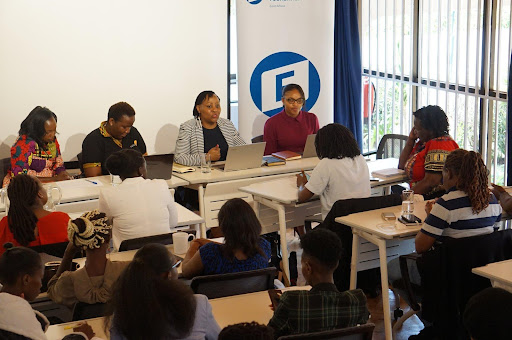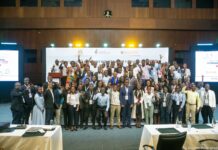By Arasha Soila
Nairobi, Kenya: As the world commemorated International Safer Internet Day, women journalists led the charge for safe and inclusive online spaces. In an event that brought together various stakeholders and contributors from the media sector from Policy, AMWIK, IAWART, and UMWA, the role of women journalists in creating a safer internet and the challenges they face in digital spaces, and the impact on their work were discussed.
Speaking during the strategic engagement KICTANET CEO, Grace Githaiga, said that the internet is a very useful space for women, and women journalists must embrace it and reap of its digital dividends. She continued by saying that women journalists should utilize the internet for their own good. “Can we use the internet to harness the opportunities it has, and bring out women’s issues and human interest stories? The internet has greatly been used to help women navigate through their careers and provide opportunities to them” she added.
The internet has become an indispensable part of our lives as people can now connect and interact virtually. Almost everything seems impossible without the internet which is why online safety is important. In a bid to combat online violence and threats that come with the internet, everyone needs to be empowered on how to use the technology responsibly, respectfully, critically, and creatively. The importance of proactively addressing harm in digital spaces cannot be overstated.

Cecilia Maundu, a broadcast journalist, digital security trainer, and podcaster at Digital dada further affirmed that online violence is a real war and that it is important to be cautious with whatever you put online. She cautioned women to use the right platforms to post their content. “The future of work is in our hands. Let us take advantage of the internet to apply for fellowships, fill surveys, and other opportunities that are available,” Cecilia noted.
In a statement by Janet Machuka, a social media marketing strategist and trainer said that so many people are benefiting from the digital space and that the digital space gives one a chance to stand on their own. She urged women to use digital spaces to grow their professionalism. Janet also stated that it is important to use our social media platforms to inform our audience about what we do. “Each one of us has a responsibility on social media, be a responsible social media user, and be active in spaces relevant to you. The drive to deeply understand how social media works changes your perspective on the digital space” she noted.
Additionally, Patience Nyange, AMWIK’S Executive Director, said that the association will continue creating safe spaces for journalists and that they will continue training and mentoring more members on digital spaces so that the conversations don’t end. “We have always been at the forefront of calling for the safety of journalists. We are also advocating for digital hygiene,” she observed. Ms. Nyange reiterated by stating that the association has a psychosocial support group where women are encouraged to speak out and continuous sensitization programs whereby journalists share their experiences. She concluded by asserting that they will create more opportunities to engage with women journalists as they are about to be more in the digital spaces.
Whereas Kenya has enshrined the right to privacy under the Constitution, Computer Misuse and Cybercrimes Act, and Data Protection Act, there are still a lot of discrepancies in data governance. It is important for people to know that they have rights in digital spaces. There is a need to reflect on the changes society is going through with digitalization and how it shifts power.














